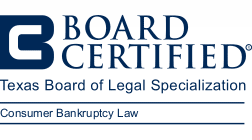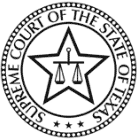Recent Blog Posts
Is Early Pay Off for Chapter 13 Bankruptcy Possible?
 In Chapter 13 bankruptcy, debts are discharged after you pay off your bankruptcy plan. In most cases, debtors in Chapter 13 have three to five years to pay off the plan, after which time the Chapter 13 discharge occurs.
In Chapter 13 bankruptcy, debts are discharged after you pay off your bankruptcy plan. In most cases, debtors in Chapter 13 have three to five years to pay off the plan, after which time the Chapter 13 discharge occurs.
What happens if a debtor wants to pay off the Chapter 13 early? Can they do that? Although paying off Chapter 13 early is possible, it is not easy. Contact an experienced Houston, TX Chapter 13 bankruptcy attorney to discuss the possibility of obtaining an early discharge in Chapter 13.
How Does Chapter 13 Bankruptcy Work?
When you file Chapter 13 bankruptcy, you keep all your property and make a repayment plan to pay off part or all of your debt with monthly payments during the payment plan period, which lasts from three to five years.
What Assets Can You Keep in a Texas Chapter 7 Bankruptcy?
 Even if you have decided to file bankruptcy because you know it is the best option for you and a way to get a fresh financial start, you may still understandably be concerned about losing your property. You might have heard that part of the Chapter 7 bankruptcy process involves selling your assets to pay off your debt, and while that is accurate to an extent, it is not the full story.
Even if you have decided to file bankruptcy because you know it is the best option for you and a way to get a fresh financial start, you may still understandably be concerned about losing your property. You might have heard that part of the Chapter 7 bankruptcy process involves selling your assets to pay off your debt, and while that is accurate to an extent, it is not the full story.
Whether it is your home – perhaps your most important asset – or a favorite piece of jewelry, some assets become part of the bankruptcy estate while others are exempt, meaning you can keep them. Find out which assets you may keep in Chapter 7 bankruptcy by having a conversation with an experienced Houston, TX attorney.
How Do Chapter 7 Bankruptcy Exemptions Work?
In Chapter 7 bankruptcy, your non-exempt assets are sold to pay off creditors. The key word here is "non-exempt." Bankruptcy allows you to keep assets that are exempt. Texas has a particularly favorable list of exempt assets and even allows you to choose between federal and state exemptions. You can make that decision by considering the assets you own and the assets you wish to keep, and of course by getting advice from a qualified attorney as to whether it is better for you to choose the Texas or federal exemptions.
The Effect of Bankruptcy on Your Rental Lease
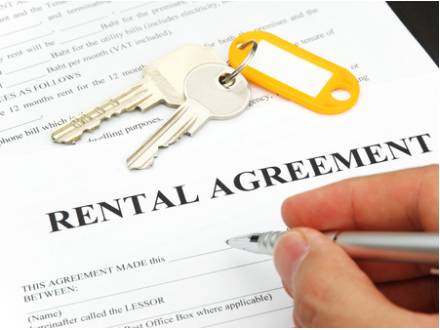 Bankruptcy can be a great tool to get back on track if you have a great deal of debt, but it is also a significant decision that can affect many areas of your financial life. If you rent your home or apartment, you should know how bankruptcy can affect your rental lease. A qualified Galveston, TX attorney can advise you on the effect bankruptcy may have on your rental.
Bankruptcy can be a great tool to get back on track if you have a great deal of debt, but it is also a significant decision that can affect many areas of your financial life. If you rent your home or apartment, you should know how bankruptcy can affect your rental lease. A qualified Galveston, TX attorney can advise you on the effect bankruptcy may have on your rental.
Effect of Bankruptcy on Rental Agreements
If you are current on your rent, bankruptcy will not affect your rental. A landlord cannot evict you merely because you have filed for bankruptcy. If you are behind on rent, you may wonder if and how bankruptcy can affect your obligations as a tenant. This is a complex area of the law and the effect of bankruptcy will depend on the facts of your case, but there are some important points to keep in mind:
Can You Discharge Personal Guarantees in Bankruptcy?
 When you offer a personal guarantee on a business debt, you take on personal liability for that debt. If you gave a personal guarantee but are now going through financial troubles, you are likely concerned about being on the hook for that debt. You may be wondering if bankruptcy discharges personal guarantees. The good news is that it is often possible to discharge or erase a personal guarantee in bankruptcy. An experienced Texas bankruptcy attorney can represent you in bankruptcy and work to discharge your personal guarantee.
When you offer a personal guarantee on a business debt, you take on personal liability for that debt. If you gave a personal guarantee but are now going through financial troubles, you are likely concerned about being on the hook for that debt. You may be wondering if bankruptcy discharges personal guarantees. The good news is that it is often possible to discharge or erase a personal guarantee in bankruptcy. An experienced Texas bankruptcy attorney can represent you in bankruptcy and work to discharge your personal guarantee.
How Do Personal Guarantees Work?
When you give a personal guarantee, your creditor may go after you personally for that debt, even if the original debt is in the name of a business. For example, a landlord may require you to sign a personal guarantee in order to lease office space for your business. If you later break the lease, the landlord will be able to go after you personally based on this personal guarantee.
Can You Negotiate a Settlement with a Debt Collector?
 If you are facing a significant amount of debt, you may be wondering about some options to pay it down, even if you are not in an ideal financial situation. One of the things you can do is attempt to negotiate a settlement or repayment agreement with your debt collector. A realistic repayment plan that gives you a chance to repay your debt may be an option for you. It is worth discussing with an experienced debt relief attorney in Austin County, TX.
If you are facing a significant amount of debt, you may be wondering about some options to pay it down, even if you are not in an ideal financial situation. One of the things you can do is attempt to negotiate a settlement or repayment agreement with your debt collector. A realistic repayment plan that gives you a chance to repay your debt may be an option for you. It is worth discussing with an experienced debt relief attorney in Austin County, TX.
Confirm Whether You Owe the Debt
The first thing you should do when contacted by a debt collector is make sure that the debt is yours and that you owe the debt. Debt collectors are required by law to give you certain information about the debt in a document called a validation notice when they contact you for collections, including:
-
A statement that the communication is actually from a debt collector
Texas Wage Garnishment Facts
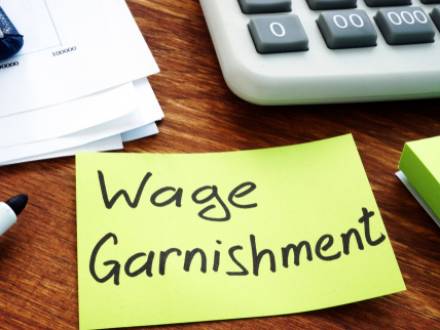 It can be disconcerting to find that your wages might be garnished — that before your hard-earned money even goes into your bank account, it is legally transferred to a creditor. But that is precisely what wage garnishment does, and it is a fully legal process.
It can be disconcerting to find that your wages might be garnished — that before your hard-earned money even goes into your bank account, it is legally transferred to a creditor. But that is precisely what wage garnishment does, and it is a fully legal process.
The good news is that Texas provides a great deal of protection for debtors from wage garnishment. Indeed, wage garnishment is not permitted in most cases under Texas law, but there are exceptions. That is why it is important to consult with an experienced wage garnishment attorney in Texas.
What is Wage Garnishment?
Wage garnishment is a legal process whereby a creditor can obtain a court order requiring your employer to garnish your wages, or withhold a certain amount and transfer it to a creditor until the debt is fully paid. There are limits to the amount that creditors can garnish from your paycheck. At the federal level, the Consumer Credit Protection Act (CCPA) limits the amount that can be garnished from wages. Texas law also limits wage garnishment.
Understanding Chapter 11 Bankruptcy
 Small business owners or individuals undergoing financial difficulties may be wondering whether Chapter 11 bankruptcy is a good option to get their finances in order. Chapter 11 is most commonly used by corporations and partnerships seeking to reorganize their debt. However, individuals can also file for Chapter 11 bankruptcy. An experienced Texas bankruptcy attorney can advise individuals and small businesses on the appropriateness of seeking Chapter 11 bankruptcy protection.
Small business owners or individuals undergoing financial difficulties may be wondering whether Chapter 11 bankruptcy is a good option to get their finances in order. Chapter 11 is most commonly used by corporations and partnerships seeking to reorganize their debt. However, individuals can also file for Chapter 11 bankruptcy. An experienced Texas bankruptcy attorney can advise individuals and small businesses on the appropriateness of seeking Chapter 11 bankruptcy protection.
What Is Chapter 11 Bankruptcy?
Called the "reorganization bankruptcy," a Chapter 11 bankruptcy allows individuals and business owners to restructure their debt and make a plan to pay back creditors. Debtors under Chapter 11 file a "reorganization plan" outlining how they intend to pay back creditors. During the course of the bankruptcy proceedings, debtors remain in possession of their assets. Chapter 11 is a complex process that involves large amounts of debt and can sometimes take a long time to resolve.
What to Know About Credit Counseling and Bankruptcy
 If you are filing for bankruptcy protection, bankruptcy law requires that you complete credit counseling within six months prior to filing bankruptcy. In order to proceed with the bankruptcy process you will have to submit a certificate of completion of credit counseling to the court, regardless of whether you plan to file for Chapter 7 or Chapter 13 protection.
If you are filing for bankruptcy protection, bankruptcy law requires that you complete credit counseling within six months prior to filing bankruptcy. In order to proceed with the bankruptcy process you will have to submit a certificate of completion of credit counseling to the court, regardless of whether you plan to file for Chapter 7 or Chapter 13 protection.
Credit counseling is required to ensure that there are not better options to filing for bankruptcy, since other debt-management alternatives are available, and also to help prevent situations that necessitate bankruptcy in the future. Done correctly, credit counseling is one of the benefits of applying for bankruptcy protection. Speak to an experienced Houston, TX bankruptcy attorney to understand the details of the credit counseling process.
Bankruptcy Trustees 101 | Texas
 Of all the aspects of the bankruptcy process, one that will have a significant role in the bankruptcy is the bankruptcy trustee. But if you are facing bankruptcy you are likely unfamiliar with the role of the bankruptcy trustee in a bankruptcy, which varies depending on whether you are filing for Chapter 7 or Chapter 13 bankruptcy. While your attorney can advise you on the trustee’s role in your case, it can be helpful to have a general idea of what the title "Bankruptcy Trustee" actually means.
Of all the aspects of the bankruptcy process, one that will have a significant role in the bankruptcy is the bankruptcy trustee. But if you are facing bankruptcy you are likely unfamiliar with the role of the bankruptcy trustee in a bankruptcy, which varies depending on whether you are filing for Chapter 7 or Chapter 13 bankruptcy. While your attorney can advise you on the trustee’s role in your case, it can be helpful to have a general idea of what the title "Bankruptcy Trustee" actually means.
What is a Bankruptcy Trustee’s Role?
In Texas, the bankruptcy trustee is appointed by the U.S. Trustee’s Office. The bankruptcy trustee is employed by the U.S. Department of Justice and works for the bankruptcy court. Their main role in the bankruptcy proceeding is to facilitate the bankruptcy process. The trustee acts as the go-between for you as the debtor and the bankruptcy court. Although trustees have a lot of powers, the court must authorize any action they take.
What to Do if a Creditor Objects at Your Confirmation Hearing
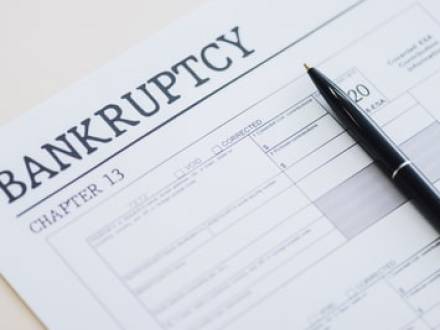 One of the final stages of a Chapter 13 bankruptcy is the confirmation hearing. At the confirmation hearing, the court will review your repayment plan to ensure that it meets the legal requirements. Your creditors will have the right to object at this hearing if they feel that their interests are not being adequately protected. If any of your creditors object, you will need to either negotiate with your creditor to resolve the issue out of court, or fight to convince a judge that your proposed repayment plan should be accepted. If you suspect that one of your creditors will object at your confirmation hearing, it is especially important to have a skilled Houston, TX bankruptcy lawyer representing you.
One of the final stages of a Chapter 13 bankruptcy is the confirmation hearing. At the confirmation hearing, the court will review your repayment plan to ensure that it meets the legal requirements. Your creditors will have the right to object at this hearing if they feel that their interests are not being adequately protected. If any of your creditors object, you will need to either negotiate with your creditor to resolve the issue out of court, or fight to convince a judge that your proposed repayment plan should be accepted. If you suspect that one of your creditors will object at your confirmation hearing, it is especially important to have a skilled Houston, TX bankruptcy lawyer representing you.
Involve a Bankruptcy Lawyer Immediately
If you had been planning to represent yourself throughout your bankruptcy proceedings, this plan may no longer be feasible. Objections at the confirmation hearing can create serious legal barriers to completing the bankruptcy process, at least in a way that is ultimately beneficial to you. Your creditor is almost certainly represented by counsel, and you should be too. An attorney should handle all communications with your creditors going forward, as he or she is in a better position to negotiate or address legal threats.


